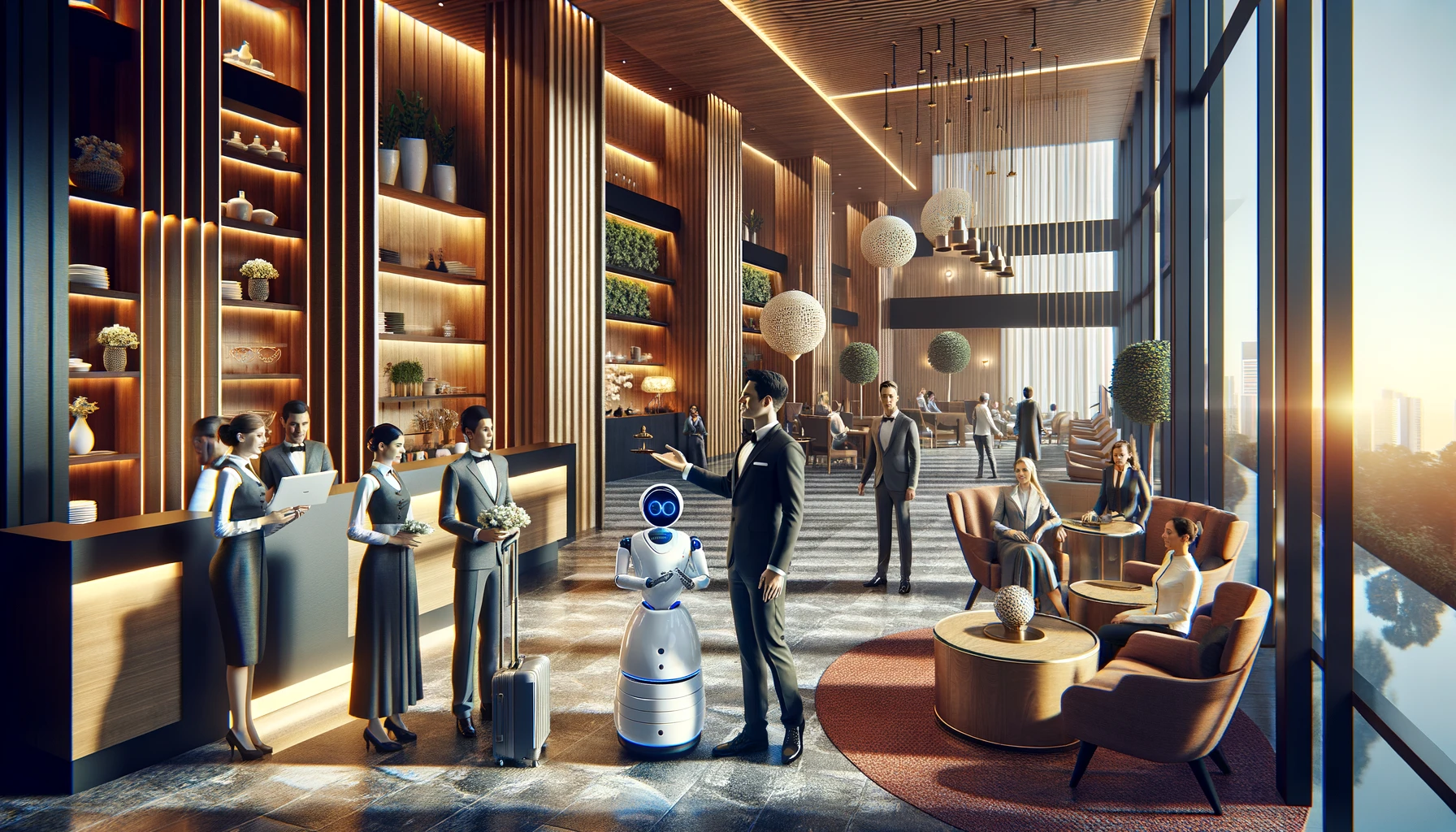Luxury Hotels That Create Personalized Experiences For Every Guest
Luxury hotels that create personalized experiences for every guest offer an exceptional blend of comfort, service, and customization that elevates the travel experience. In a world where every traveler seeks more than just a place to stay, luxury hotels distinguish themselves by meticulously curating experiences that cater to individual preferences and desires. From bespoke itineraries to tailored dining options, these establishments redefine hospitality by putting the guest at the center of every decision.
The importance of personalization in the luxury hotel sector cannot be overstated; it is what transforms an ordinary stay into an unforgettable journey. With a focus on gathering guest preferences and utilizing advanced technology, luxury hotels are continuously innovating to ensure each visit feels uniquely crafted. As we explore how these hotels implement personalization techniques, we will also highlight exemplary case studies and discuss the impact of such experiences on guest loyalty and satisfaction.
Overview of Luxury Hotels
Luxury hotels represent the pinnacle of hospitality, offering unparalleled levels of comfort, service, and sophistication. They cater to discerning travelers who seek not just a place to stay, but an immersive experience that reflects their individual tastes and preferences. From exquisite décor to gourmet dining options, luxury hotels are designed to provide guests with moments of indulgence and relaxation that go beyond the ordinary.
The defining characteristics of luxury hotels include exceptional service, upscale amenities, and attention to detail. These establishments often feature spacious accommodations, personalized concierge services, and a range of facilities such as spas, fine dining restaurants, and exclusive lounges. A key aspect that distinguishes luxury hotels from standard accommodations is the commitment to creating personalized experiences tailored to the unique needs and desires of each guest. This emphasis on personalization is paramount in the luxury hotel industry, as it not only enhances guest satisfaction but also fosters loyalty and repeat visits.
Importance of Personalized Experiences
In the competitive landscape of luxury hospitality, personalized experiences serve as a critical differentiator. Guests expect tailored services that align with their preferences, from customized welcome amenities to bespoke itineraries that reflect their interests. The ability to anticipate and cater to individual needs enhances the overall guest experience and fosters a sense of belonging.
The following elements highlight how luxury hotels excel in creating personalized experiences:
- Customized Guest Profiles: Luxury hotels often maintain detailed profiles for frequent guests, documenting their preferences such as room temperature, dietary restrictions, and favorite activities. This allows for a seamless check-in experience and personalized touches throughout their stay.
- Tailored Services: Services such as personal concierge assistance, private chefs, or tailored spa treatments are frequently offered to enhance the guest experience. This level of attention creates a unique atmosphere that standard hotels may not provide.
- Local Experiences: Luxury hotels often curate exclusive local experiences, such as private tours of cultural landmarks or reservations at high-end restaurants. These experiences allow guests to immerse themselves in the destination while enjoying the comforts of luxury.
- Attention to Detail: From the selection of high-quality linens to personalized welcome notes, every detail is meticulously planned to exceed guest expectations. This attention fosters a feeling of exclusivity and care.
These elements not only elevate the guest experience but also reinforce the brand’s reputation for excellence in hospitality, setting luxury hotels apart from their standard counterparts.
Unique Selling Propositions of Luxury Hotels
Luxury hotels boast unique selling propositions that are integral to their identity and appeal. These elements attract guests who are willing to invest in a superior travel experience and seek more than just basic accommodation.
Key unique selling propositions include:
- Exclusive Locations: Often situated in prime and picturesque destinations, luxury hotels provide breathtaking views and easy access to local attractions, making them highly desirable for travelers.
- World-Class Amenities: Luxury hotels offer amenities that go beyond the basics, such as infinity pools, wellness centers, and unique dining experiences crafted by renowned chefs.
- Exceptional Service Standards: The staff at luxury hotels are trained to provide service that is attentive yet unobtrusive, ensuring that every guest feels valued and cared for throughout their stay.
- Brand Reputation and History: Many luxury hotels are part of well-established brands known for their commitment to excellence and heritage, which adds to the allure for guests seeking prestige and reliability.
These unique selling propositions create a compelling narrative that positions luxury hotels as the ideal choice for travelers seeking high-end accommodations that prioritize comfort, prestige, and personalized service.
Personalization Techniques in Luxury Hotels

Luxury hotels are increasingly focused on crafting unique experiences tailored specifically to the preferences of each guest. This commitment to personalization goes beyond mere hospitality; it forms a key part of a hotel’s branding and service philosophy. By leveraging an array of techniques, luxury hotels cultivate an environment where every guest feels recognized and valued, ensuring their stay is memorable and distinctive.
To achieve this level of personalization, luxury hotels implement sophisticated methods to gather and analyze guest preferences. Data collection begins as soon as a reservation is made, often through direct communication channels such as online forms, chatbots, and mobile applications. Many establishments also utilize loyalty programs that track guest behavior, preferences, and feedback over time. Advanced customer relationship management (CRM) systems compile this information, allowing hotels to create comprehensive profiles that inform their service offerings.
Methods of Gathering Guest Preferences
The ways in which luxury hotels gather data on guest preferences are diverse and innovative. Here are a few key methods employed:
- Pre-Arrival Surveys: Many hotels send out personalized surveys before the guest’s arrival to inquire about their preferences, such as pillow types, dietary restrictions, or special occasions.
- Loyalty Programs: These programs track guest visits and preferences over time, enabling hotels to offer tailored services based on past stays.
- Mobile Apps: Many luxury hotels have developed their own applications that allow guests to customize their room settings, order room service, or make dining reservations directly from their smartphones.
- Staff Training: Hotel staff undergo extensive training to recognize and respond to guest preferences through attentive service, creating a personal connection with guests.
Personalized services in luxury hotels can take many forms, contributing significantly to the overall guest experience. Here are some illustrative examples of tailored offerings:
Examples of Personalized Services
Luxury hotels curate bespoke experiences ranging from custom itineraries to individualized dining options, enhancing the guest’s stay:
- Bespoke Itineraries: Hotels often offer personalized itinerary planning services that cater to guests’ interests, whether they’re seeking adventure, relaxation, or cultural immersion. For instance, a guest interested in culinary experiences may be paired with local chefs for private cooking classes.
- Customized Dining Experiences: Some hotels provide private dining options where chefs create personalized menus based on guests’ dietary needs and favorite cuisines, transforming a typical meal into a gourmet experience.
- Personal Concierge Services: Concierges can tailor services to ensure guests receive unique recommendations for activities and services that match their interests, from exclusive access to events to curated local tours.
Technology plays a pivotal role in the personalization strategies employed by luxury hotels.
Utilization of Technology in Personalization, Luxury hotels that create personalized experiences for every guest
The integration of technology in luxury hotels enhances the capability to deliver personalized experiences:
- Smart Room Features: Many luxury hotels now offer smart room controls allowing guests to adjust lighting, temperature, or entertainment preferences through their devices, creating a customized atmosphere according to their tastes.
- Mobile Apps: Through dedicated hotel apps, guests can manage their stay, request services, and even receive tailored recommendations based on their previous interactions and preferences.
- AI Chatbots: Some hotels employ AI-powered chatbots to provide instant assistance, which can include personalizing recommendations based on previous stays or preferences noted in their profiles.
“The essence of luxury hospitality lies in understanding and anticipating the needs of each guest, turning their preferences into unforgettable experiences.”
Case Studies of Luxury Hotels with Exceptional Personalization
Luxury hotels have increasingly recognized the importance of crafting personalized experiences for their guests. This tailored approach not only enhances guest satisfaction but also fosters loyalty and encourages repeat visits. Renowned luxury hotels around the globe have implemented innovative strategies to ensure that every stay is unique and memorable, setting benchmarks for the entire hospitality industry.
One prime example of exceptional personalization is The Ritz-Carlton, known for its iconic service philosophy. The brand employs a system called the “Guest Profile,” which captures preferences and experiences of guests. This allows staff to tailor amenities, such as favorite beverages or special requests, before guests even arrive. The Ritz-Carlton has also embraced technology; its mobile app enables guests to customize their stay, from room temperature to pillow options.
Exceptional Personalization Strategies
Luxury hotels utilize a variety of personalization strategies to enhance guest satisfaction. Below are key approaches that highlight how different brands deliver bespoke experiences:
- Four Seasons Hotels and Resorts: This brand invests heavily in staff training, emphasizing the importance of anticipating client needs. Upon check-in, guests are asked about their preferences, such as dietary restrictions or favorite activities, which are recorded for future visits. This attention to detail allows for a seamless experience, making guests feel valued.
- Aman Resorts: Renowned for its intimate and serene environments, Aman takes personalization a step further by allowing guests to curate their own itineraries. This includes everything from private yoga sessions to exclusive dining experiences tailored to individual tastes. Their commitment to understanding the unique desires of each guest creates an unparalleled sense of ownership over their stay.
- Mandarin Oriental: Personalization at Mandarin Oriental is evident through their “Fans of the Hotel” program. This initiative allows frequent visitors to connect with hotel staff who remember their preferences and special occasions. By leveraging a personal touch, the hotel builds lasting relationships, which makes guests feel at home away from home.
The comparison of personalization strategies across these luxury hotel brands reveals intriguing insights into the hospitality industry. While The Ritz-Carlton focuses on technology-driven personalization, Four Seasons prioritizes proactive service through comprehensive staff training. On the other hand, Aman Resorts emphasizes guest autonomy in crafting their experiences, highlighting a more individualized approach. Each strategy, while unique, ultimately aims to foster a deep connection between the guest and the brand, elevating the overall experience.
“The essence of personalized luxury lies in the details that transform a stay into a memorable journey.”
Impact of Personalized Experiences on Guest Loyalty: Luxury Hotels That Create Personalized Experiences For Every Guest
Personalized experiences in luxury hotels play a pivotal role in enhancing guest loyalty. When guests feel uniquely valued and understood, their emotional connection to the hotel deepens, leading to increased retention. The luxury hospitality sector thrives on creating memorable experiences that resonate with individual preferences, ultimately fostering a loyal customer base.
Personalized experiences directly contribute to guest retention through tailored services and meaningful interactions. Luxury hotels employ various strategies to ensure each guest feels special, from remembering returning guests’ names and preferences to customizing room amenities based on previous stays. This level of attention not only satisfies customers but also encourages them to return.
Feedback Mechanisms for Enhancing Personalization
Luxury hotels utilize robust feedback mechanisms to continually refine their personalization strategies based on guest reviews. These mechanisms are vital, as they allow hotels to identify areas of improvement and to innovate their service offerings. Some prominent practices include:
- Post-Stay Surveys: Many hotels send out detailed surveys after a guest’s stay, asking specific questions about personal experiences and preferences.
- Online Reviews Analysis: Analyzing reviews on platforms like TripAdvisor allows hotels to gain insights into guest satisfaction and areas needing enhancement.
- Direct Guest Communication: Engaging with guests through personalized emails or messages encourages feedback and builds rapport with returning patrons.
- Social Media Engagement: Monitoring social media mentions helps hotels understand guest sentiments and adapt their services accordingly.
A significant observation in the hospitality sector indicates that personalized guest experiences lead to a substantial increase in loyalty. According to a study by the American Express Global Business Travel, 70% of travelers expressed a preference for hotels that offer personalized experiences. Additionally, research by the Harvard Business Review shows that customers who receive personalized services are 80% more likely to return, underscoring the strong correlation between personalization and guest loyalty.
“Personalization is not just a trend; it’s the future of hospitality, where meeting individual guest needs leads to long-term loyalty.”
Future Trends in Personalized Luxury Hospitality
The landscape of luxury hospitality is poised for transformation as hotels increasingly embrace personalized experiences tailored to individual guest preferences. Emerging technologies and evolving guest expectations drive this shift towards more bespoke services. As we look into the future, several key trends are anticipated to shape the personalized luxury hotel experience over the next decade.
Emerging Trends in Personalization
Luxury hotels are integrating cutting-edge technologies and innovative strategies to enhance guest personalization. These trends not only reflect changing consumer demands but also leverage advancements in technology to deliver exceptional service. Some notable trends include:
- Biometric Recognition: Hotels are beginning to implement biometric systems, such as facial recognition and fingerprint scanning, to streamline check-ins and personalize service more effectively, making the guest experience seamless.
- Customized Room Environments: Smart room technologies will allow guests to adjust lighting, temperature, and even scent preferences through mobile apps, creating a fully tailored atmosphere for relaxation.
- Hyper-Personalized Communication: Utilizing data analytics, hotels are crafting personalized marketing messages and pre-arrival communications that resonate with individual guest preferences, thus enhancing engagement.
- Experiential Packages: Luxury hotels will increasingly offer unique, customizable experiences that align with guests’ interests, such as curated local tours, bespoke dining options, and wellness retreats tailored to personal wellness goals.
- Collaborations with Local Artisans: Partnering with local artists and craftsmen to create unique, personalized decor and amenities allows hotels to give guests a genuine taste of the local culture.
Role of Artificial Intelligence and Machine Learning
Artificial intelligence (AI) and machine learning are set to revolutionize how luxury hotels engage with their guests by analyzing vast amounts of data to predict preferences and behaviors. This technology will enable hotels to automate routine tasks and deliver personalized services more efficiently. For instance:
- Predictive Analytics: By analyzing guest data, AI can anticipate guest needs and preferences, allowing hotels to proactively offer services tailored to individual requirements, thus elevating the guest experience.
- Virtual Assistants: AI-powered chatbots and virtual concierges will provide 24/7 assistance, answering queries and fulfilling requests in real-time, enhancing guest satisfaction and operational efficiency.
- Personalized Recommendations: Machine learning algorithms will enable hotels to deliver customized recommendations for dining, activities, and amenities based on past behaviors and preferences, further personalizing the guest experience.
Vision of Personalized Luxury Hotel Experiences in the Next Decade
In the next decade, personalized luxury hotel experiences will harness advanced technologies and deeper emotional connections to redefine guest interactions. The following advancements are expected to shape this evolution:
- Fully Integrated Smart Hotels: A future hotel could be equipped with interconnected smart devices that learn from guest interactions, providing a truly personalized experience that adjusts in real time to individual preferences.
- Augmented Reality Experiences: Guests may use augmented reality applications to enhance their stay, from interactive room guides to immersive local cultural experiences designed to captivate and engage.
- Luxury Wellness Integration: The future will see a stronger emphasis on holistic well-being, with hotels offering personalized wellness programs that cater to physical, mental, and emotional health, enhancing the overall guest experience.
- Sustainability and Personalization: As eco-consciousness grows, luxury hotels will blend personalized experiences with sustainable practices, offering guests the option to choose eco-friendly services and products tailored to their values.
- Emotional Intelligence in Service: Future staff training will emphasize emotional intelligence, enabling hotel staff to connect with guests on a deeper level, providing a more personalized and memorable experience.
Challenges in Implementing Personalization
As luxury hotels strive to create tailored experiences for each guest, they encounter various obstacles that can hinder their efforts. The path to personalization is fraught with challenges, from data management issues to staff training. Identifying these obstacles is essential for hotels aiming to elevate their service and enhance guest satisfaction.
A significant challenge is the integration of technology systems to collect and analyze guest data effectively. Many hotels lack the robust infrastructure needed to track preferences and behaviors accurately. This can lead to missed opportunities for meaningful interactions. Additionally, staff members may not be adequately trained to utilize available data in a way that enhances personalization. Without a culture that emphasizes the importance of personalized service, even the best technology can fall short.
Technology Integration and Data Management
The implementation of personalized experiences in luxury hotels heavily relies on technology. However, integrating systems that can effectively gather and analyze data presents a substantial challenge. A lack of cohesive software solutions can result in fragmented guest information, making it difficult for staff to deliver a seamless personalized experience.
To address this, hotels can invest in sophisticated Customer Relationship Management (CRM) systems that consolidate guest information. This allows for a unified view of each guest’s preferences, history, and feedback. Regular training sessions for staff on how to leverage this technology can also improve the personalization process.
Moreover, hotels can adopt a proactive approach to data collection by encouraging guests to share their preferences at the time of booking or check-in. Simple initiatives, like using pre-arrival questionnaires, can lead to richer data sets that enhance personalization efforts.
Staff Training and Corporate Culture
Even with advanced technology, the effectiveness of personalization hinges on the capabilities of hotel staff. A lack of training can result in missed opportunities to create memorable experiences. Staff members may struggle to interpret data or fail to recognize guest preferences in real time.
To overcome this barrier, hotels should prioritize the development of a strong corporate culture focused on personalized service. This can be achieved through comprehensive training programs that emphasize the importance of understanding and anticipating guest needs.
Additionally, creating a feedback loop where employees can share insights on guest interactions is crucial. By fostering an environment where staff can learn from each other’s experiences, hotels can enhance their overall service and strengthen the commitment to personalization.
Comparison of Guest Experiences
The contrast between hotels that excel in personalization and those that struggle is stark. Guests at hotels that successfully implement personalized experiences often report higher levels of satisfaction. They enjoy tailored services, such as customized welcome amenities, personalized itineraries, and staff who remember their names and preferences.
In contrast, guests at hotels that fail to prioritize personalization may feel overlooked and undervalued. A lack of attention to detail, such as forgetting a guest’s special requests or not recognizing loyalty, can lead to feelings of frustration.
This divide in guest experience illustrates the importance of overcoming the challenges that impede personalization. As luxury hotels navigate these obstacles, their ability to create memorable moments for guests will directly impact loyalty and repeat visits.
Guest Expectations and Experiences

Modern travelers visiting luxury hotels are increasingly discerning about their experiences, seeking personalized services that cater to their unique preferences and desires. These guests expect more than just opulence; they anticipate tailored interactions that resonate with their individual lifestyles, values, and expectations. As personalization becomes paramount, luxury hotels must rise to the occasion to not merely meet but exceed these expectations, thereby enhancing guest satisfaction and loyalty.
To effectively cater to the sophisticated demands of today’s luxury travelers, hotels must adopt advanced personalization techniques that are both innovative and thoughtful. This involves diligently gathering data on guest preferences, utilizing technology to streamline services, and training staff to provide exemplary, individualized attention. Luxury hotels can implement several strategies to elevate the guest experience:
Personalization Strategies to Exceed Expectations
Implementing effective personalization strategies can significantly enhance the guest experience. Here are some key strategies that luxury hotels can adopt:
- Pre-Arrival Customization: Hotels can reach out to guests before their arrival to inquire about specific preferences, such as pillow types, dietary restrictions, or special occasions, ensuring that every detail is curated to their liking.
- Tailored Room Amenities: By offering personalized welcome gifts in the guest’s room, such as their favorite snacks or a handwritten note, hotels can create a warm, inviting atmosphere that makes guests feel valued.
- Personalized Itineraries: Creating individually tailored itineraries based on guest interests—such as local cultural experiences, wellness activities, or gourmet dining—demonstrates a commitment to their unique preferences.
- Dedicated Concierge Services: Employing personal concierges who are well-versed in the local area allows for bespoke recommendations and arrangements, ensuring guests receive insider access and exclusive experiences.
Guest testimonials often highlight the impact of personalized experiences on their overall satisfaction. For example, one guest remarked,
“The hotel staff remembered my favorite type of coffee, and I found it waiting in my room every morning. This attention to detail made my stay extraordinary.”
Another guest shared their delight, stating,
“Celebrating my anniversary, the hotel surprised us with a romantic dinner on the rooftop—an unforgettable experience that exceeded our expectations.”
Such testimonials underscore the significance of personalized touches in shaping memorable experiences that foster loyalty among guests.
In conclusion, the art of personalization in luxury hospitality is not just a trend; it is a necessity that aligns with the evolving expectations of modern travelers. By understanding and anticipating the desires of their guests, luxury hotels can create unforgettable experiences that resonate long after check-out, ensuring a lasting impression and encouraging return visits.
For those seeking rejuvenation, exploring luxury hotels with unique wellness and relaxation programs can be a transformative experience. These establishments go beyond traditional spa offerings, incorporating holistic approaches that harmonize body and mind. From yoga retreats to bespoke wellness treatments, each program aims to provide a sanctuary where guests can unwind and recharge in style.
When it comes to rejuvenation, exploring luxury hotels with unique wellness and relaxation programs can elevate your experience. These hotels offer tailored wellness retreats, featuring holistic treatments and serene environments designed to promote relaxation. Indulging in such bespoke services not only rejuvenates the body but also nourishes the mind, creating a perfect escape from everyday stress.








